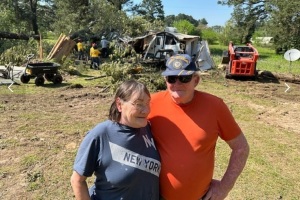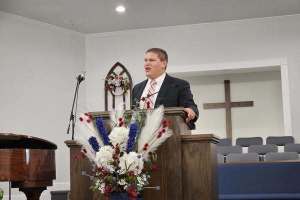Knights of Columbus CEO Tells Congress US Can Avert Extinction of Christians in Iraq, Syria

Knights of Columbus CEO Carl Anderson testified before a congressional subcommittee, warning that indigenous Christians and other minorities in Iraq and Syria face extinction in less than a decade and that the United States can avert this crisis.
"Many of the region's indigenous communities now face extinction. These communities may disappear in less than a decade. But their fate is not inevitable," Anderson told the U.S. House of Representatives Subcommittee on Africa, Global Health, Global Human Rights, and International Organizations of the Committee on Foreign Affairs.
In March, Secretary of State John Kerry acknowledged for the first time that genocide being committed by the Islamic State terror group, which is also known as ISIS or ISIL or Daesh, against Christians and other religious minorities in the Middle East.
The United States can avert this crisis, Anderson, who heads the Catholic fraternal organization, told the lawmakers at the hearing, titled, "The ISIS Genocide Declaration: What Next?" He urged them to act according to six principles.
"Increase humanitarian aid and provide oversight to ensure it gets to those targeted for genocide. Support the long-term survival of indigenous religious and ethnic communities by supporting their right to remain in their country. Punish the perpetrators of genocide and crimes against humanity. Assist the victims of genocide to attain refugee status. Prepare now for foreseeable human rights challenges as ISIS-controlled territory is liberated and civilians flee the violence. Condition humanitarian and military assistance to governments in the region on their meaningful commitment to human rights."
Anderson said Christian leaders in Iraq and Syria are receiving help only from private charities, and no money from the U.S. Government or the United Nations to respond to the crisis of Internally Displaced Persons and urban refugees.
"If assistance from outside Church affiliated agencies ends in Erbil [Iraq], Christians, they will face a catastrophic humanitarian tragedy within 30 days," he warned, emphasizing that the assistance of governments and international organizations is necessary.
Apart from Anderson, Sarhang Hamasseed of the U.S. Institute of Peace; Johnny Oram, executive director of the Chaldean Assyrian Business Alliance; and David Crane of Syracuse University College of Law, also testified at the hearing.
After Kerry's acknowledgement of the genocide, Anderson commended the U.S. State Department for its courage. "By joining its voice to that of the House of Representatives, the American people, and the international community, the United States today makes clear to ISIS that its attempt to stamp out religious minorities must cease," he said at the time.
"The United States and the world are united on this, and simply will not look the other way," Anderson added.
The American Center for Law and Justice has also called on the U.S. to take several steps and advance the case at the U.N.
"1) Pressing the United Nations to declare that the ongoing atrocities committed by the Islamic State and associate groups constitute genocide; 2) communicating with all appropriate offices of the United Nations to that end; and 3) doing everything in your power to mobilize the international community to take swift and decisive action," the ACLJ said in a letter to Kerry.
Earlier in May, the U.N. Secretary-General's Special Representative and Head of the United Nations Assistance Mission for Iraq, Jan Kubis, submitted a briefing to the Security Council condemning "in the strongest possible terms the continued killings, kidnapping, rape and torture of Iraqis by ISIL, which may constitute crimes against humanity, war crimes and even genocide."





























